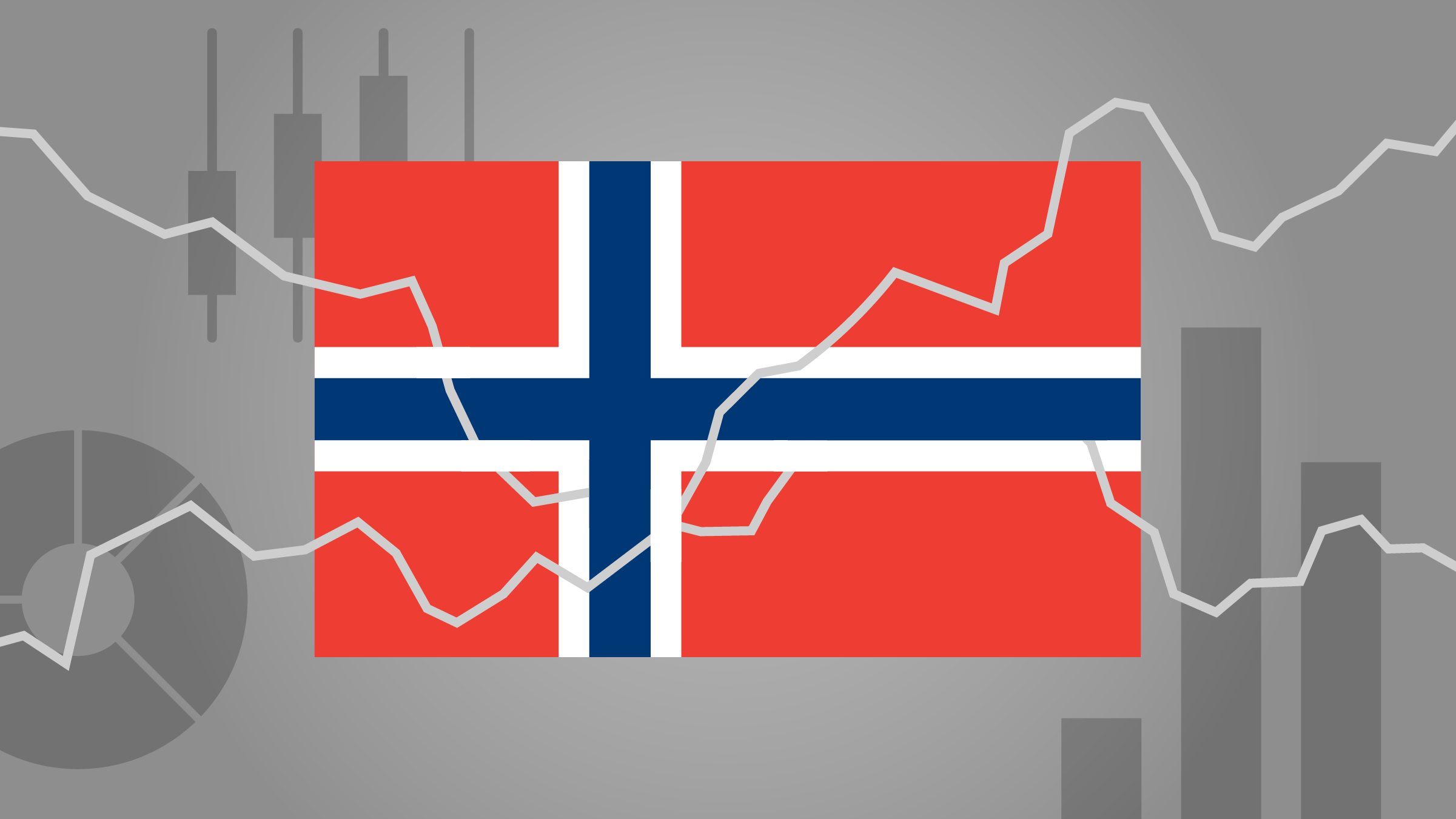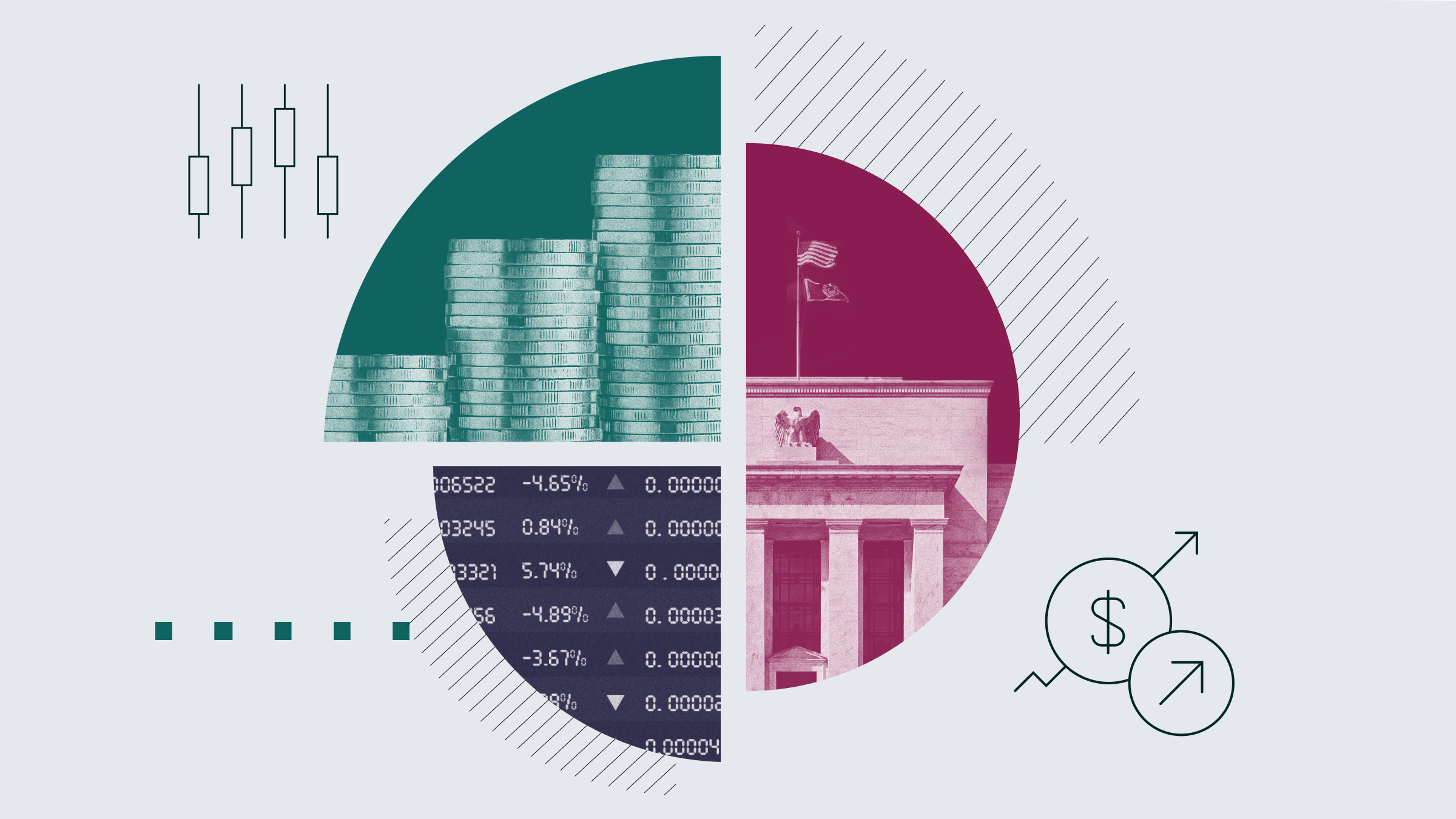For å se aksjekursene til verdipapirene nevnt her, skroll ned i artikkelen og på høyre side vil du finne de aktuelle lenkene.
Jason Stipp: I'm Jason Stipp for Morningstar, and welcome to The Friday Five--once again, five stats from the market and the stories behind them.
Joining me with the Friday Five is Morningstar markets editor Jeremy Glaser.
Jeremy, thanks for being here.
Jeremy Glaser: Glad to be here, Jason.
Stipp: What do you have for The Friday Five this week?
Glaser: The numbers we're going to look at are 2, 2.3 million, minus 5%, 16%, and 18%.
Stipp: Should eBay be two companies? That's Carl Icahn's position. He made that clear this week. What does our analyst think?
Glaser: We think that it doesn't make sense to split eBay up.
R.J. Hottovy, who covers eBay for us, says that the two businesses just work too well together. There is too much synergy there, [so it doesn't make] a lot of sense to break it up. It actually would destroy shareholder value over time.
Carl Icahn is right that the market isn't fully appreciating what eBay is doing right now--that they are adding a lot of new customers, they are really making big moves into mobile, they are becoming an increasingly important player in e-commerce, and they are really competing with Amazon there.
But that doesn't mean that splitting up the businesses all of a sudden is going to get the market to recognize that or is going to help them over the long term. [eBay] really needs that payment processing, they need that omni-channel ability to take payments from many different places. The customer data they get from that is very valuable for them. Splitting it up is only going to maybe give you some short-term benefit, but it gives you almost no long-term benefit.
Stipp: Netflix reported 2.3 million new subscribers in the fourth quarter. The market liked this a lot. But does it really fundamentally change the story about this company's prospects?
Glaser: Netflix has been on a roll; there is absolutely no question about that. It's up 240% over the last year; it's one of the most talked-about stocks. Lots of people are very focused on, are they going to be able to continue this growth?
<TRANSCRIPT>
They have been so far. They added a lot of new customers. Margins and profitability look a little bit better as their content costs didn't increase nearly as much as the revenue that came in. But a lot of those long-term questions that investors still need to be worried about are still very much out there. Content costs could continue to go up. Even if you convince a lot of people that it's worth it to pay for Netflix, it's only going to be worth it if you provide them content that they actually want to see. That could get more expensive over time, which is something Netflix doesn't necessarily have a lot of control over. That could be challenging.
International expansion is going to continue to be difficult. And then also, when you look at valuation, even if you do see a lot of growth there, if you pay so much for every dollar of earnings, you are just not really going to be able to get a good return over time. So even though [Netflix is] performing really well on a fundamental basis, investors should probably still exercise some caution before trying to jump on what is maybe more of a momentum-driven play.
Stipp: IBM reported a 5% decline in earnings this week, but they managed to make some other metrics look a little bit better.
Glaser: They did not have a great quarter or a great year. [Morningstar analyst] Grady Burkett calls it disappointing on all accounts. They had that 5% decline in earnings, and a lot of that was driven by weakness in their hardware business. But earnings per share actually grew pretty nicely, and that was driven almost exclusively by non-operating items. You had share buybacks that reduced the number of shares you're dividing earnings by, things like a lower tax rate, some asset sales that helped make EPS look a little bit better.
But this doesn't really represent what's happening in the business, and I think the market looked right through that number and past those non-operating items.
This doesn't mean that IBM is in dire straits by any stretch of the imagination. Their software business still has a lot of potential. They are exiting some of these lower-margin hardware businesses. For example, they just sold their low-end server business to Lenovo this week. But I think the fact that they are really seeing these non-operating items is actually something we've seen across a couple of different earnings reports over the season so far. Companies are showing fundamentally some weakness--they are not seeing great demand--but they are able to post decent earnings growth either because of some cost-cutting moves or because of share buybacks, or whatever else it might be.
I think investors really do need to dig a little bit deeper to make sure they understand what's happening fundamentally in the business, because those one-time items can't go on indefinitely, and unless there is an underlying demand, unless there is that underlying strength, it could catch up with them eventually.
Stipp: Coach is also reporting a decline in earnings of 16% this week, but things across the board were not all bad for the retailer.
Glaser: Coach didn't have a great quarter. North America looked very weak for them; same-store sales declined there, but it was driven mainly by their lower-end products. Their higher-end products actually sold pretty well; their men's collection sold pretty well. And I think this is just more indicative of what's happening with the mass consumer being very squeezed … more than it is something that's fundamentally wrong with Coach or fundamentally wrong with Coach's business model. I think the fact that affluent shoppers are still out there and are still buying Coach products is a good signal that their strategy is working right now.
Paul Swinand, who covers Coach for us thinks that shares are a little bit undervalued right now and could be an interesting opportunity to keep an eye on.
Stipp: On the plus side in earnings this week, J&J reported an 18% rise in their North American drug business. There have been a lot of concerns about the patent cliff, but this shows that branded drugs still do have some legs.
Glaser: Johnson & Johnson had a great quarter, and it was driven, like you mentioned, by that drug business in North America particularly. That's a very high-margin business, and it helped make profitability look pretty good.
… The broader pharmaceutical industry is at an interesting inflection point right now, as Matt Coffina, the editor of Morningstar StockInvestor, talked about this week in his weekly update, [with respect to] this wave of generics that we always talk about. We have this patent cliff with these generics coming online; that was a big thing weighing on a lot of pharma investors' minds for a while.
But that's really turning around; the pipelines look much stronger now for the branded drugs than they have for a while. Some of the new drugs coming into the market are very difficult to turn into generics, including biologics, and that could provide some support. Over time, branded drugs aren't exactly going away, and even if you do have cost pressures with things like the Affordable Care Act and budget pressures across the world--even if that does bring prices down somewhat--there are still enough new drugs, still enough positives there, to really keep the branded-drug business doing well.
Now, a lot of these businesses are not cheap right now. They might not make good additions to your portfolio at the moment, but if there were to be a sell-off, if there were to be some concern around these names, they could be good ones to keep on the radar screen if there are some better prices.
Stipp: Jeremy, The Friday Five pipeline is as robust as ever. Thanks again for joining me.
Glaser: You're welcome, Jason.
Stipp: For Morningstar, I'm Jason Stipp. Thanks for watching.



















